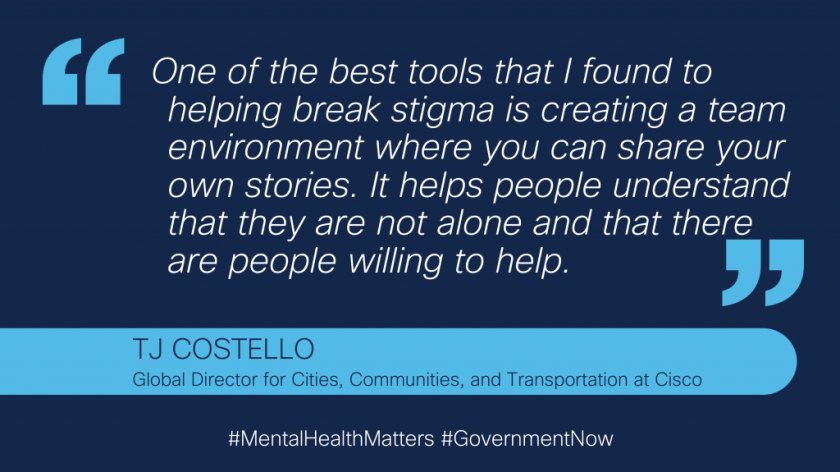Undoubtedly, the mental health impact of the COVID-19 pandemic is universal. The World Health Organization notes that almost all people affected by emergencies will experience psychological distress. Now, more than ever, actions to protect mental health are of the utmost importance. Governments must respond, recover, and reimagine in ways that devote resources, develop programs, and improve access to mental health care.
Caring for ourselves and our communities
Currently, mental health care is traditionally confined to reactive, and often inaccessible and expensive, treatment. Compounding this, is a longstanding narrative of cultural stigma that further disheartens people to speak out or seek help.In these extraordinary times, many public health organizations are committed to achieving equitable access for the communities they serve. In Canada, the Centre for Addiction and Mental Health (CAMH) is increasing its secure connectivity and collaboration capacity after experiencing a 750% spike in telemental health sessions thus far during the COVID-19 pandemic.
Cisco’s secure Webex tools enable virtual care and visits, positioning CAMH to rapidly adapt to the evolving demand for mental health care service delivery. This is a pivotal moment for a new frontier of telemental health in Canada, and as a shining example to the rest of the world.
“Through innovation and technology, we have an opportunity to reimagine and rebuild a broader system of virtual care that is safe, secure, flexible and accessible.” Dr. Allison Crawford, CAMH
Promoting innovation and reform
Failure to treat mental health can cost the world over one trillion dollars each year. The human cost is even greater.As a leading cause of disability in many countries around the world, mental health care must embrace innovative treatments and the better use of technology to improve outcomes for people with mental illness.
It is likely that the future of health will not exist as it does now. For care that is not delivered virtually, it will be imperative to modernize holistic health and strengthen access to care to better serve the most vulnerable populations.
Telehealth and collaboration technologies empower virtual patient care that will improve access to treatment. While this opens up great opportunity for better patient care and streamlined clinical operations, it also brings challenges in security and scalability. However, as telehealth becomes a new standard, we move from reactive to proactive. And Cisco is here to help you securely scale for what’s now and what’s next.
Link to industry solution portfolio explorer
Growing amounts of personal health data can be used as predictive and preventative health resources for mental health. Promoting the use of emerging and future technologies, like artificial intelligence and data platforms, we can leverage improved data sources to integrate behavioral and physical health for holistic wellness. And, as governments deliberate how to fund these initiatives, they will be prudent to remember that the material impact and cost to society is immense.Government organizations have significant power in making decisions about mental health systems, programs, and availability of services. As such, governments must act as stewards of public health and well-being. For example, New York City maintains a comprehensive program intended to improve access to mental health care and break down barriers to treatment. Innovative services, new delivery models, and technology improvements can ultimately increase competency of health providers and their capacity for adequate care.
Addressing stigma
We can all play a role in improving mental health and changing the status quo. Educating people about the importance of social emotional learning can help break down barriers and promote open dialogue about mental health.
Stigma prevents 40 percent of people with anxiety or depression from seeking care. Fear and lack of information feed the mental health crisis. This is why I pledge to let others know that there is hope and understanding. You, too, can change the way the world views mental health.
Mental Health Matters
Mental health matters. And governments must step up to the challenge to better lead, protect, serve, and educate toward collective resilience. This Mental Health Awareness Month, let’s cure stigma, educate ourselves, and build a world where our health systems foster competency and compassion to recognize, treat, and support those experiencing this human toll. Mental health is health and Cisco aims to treat it that way.It is in the unknown where we find possibility. And we’re in this together.















